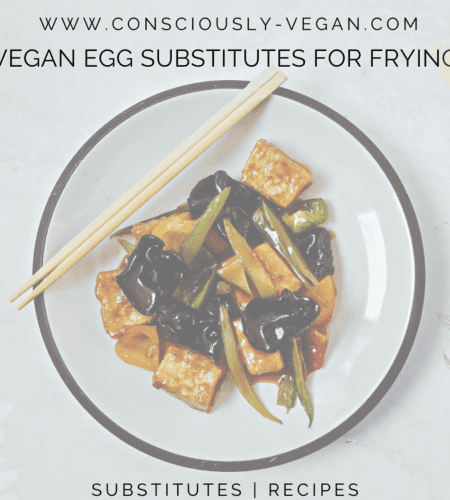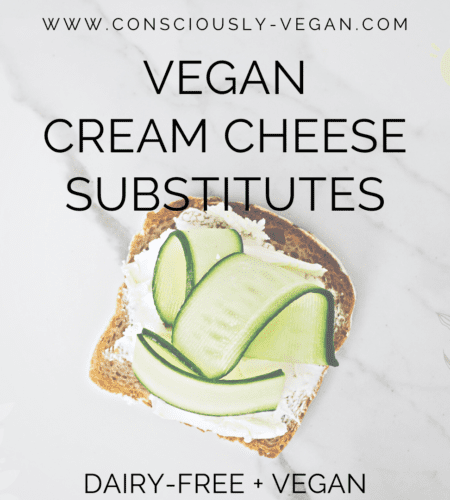What Is a Vegan Diet?
What is a vegan diet? You may have heard that the eating vegan is boring and bland. But that’s not true! A vegan diet is a diet that excludes all animal-derived foods. When you think of a vegan diet, you might imagine someone who only eats vegetables and grains. And there’s nothing wrong with that! But you don’t need to live on salad in order to be vegan.
In fact, you don’t have to give up your favorite meals to enjoy a vegan lifestyle. You can make easy, delicious recipes that are completely meat and dairy free. But here is more to learn!
What does vegan mean?
You’ve probably heard that a vegan diet is healthy, but what exactly does “vegan” mean? And how can it help your health? Let’s dive in!
It is a diet that excludes consuming anything that comes from an animal. There are many amazing vegan alternitives on the market, but I prefer to eat more plant- based which focuses primarily on consuming whole foods from plants. It means no meat or dairy products (including eggs and honey). It also means you’re getting an abundance of fruits and vegetables, whole grains, and legumes/beans instead!
Both the vegan and plant-based diets offer many health benefits. It can reduce risk of heart disease and stroke risk by lowering your blood pressure and cholesterol levels, and keep you diabetes in control. It also can help lower risk of colon cancer by reducing inflammation in your body.
Getting started on a vegan diet
When transitioning to the vegan lifestyle it’s essential to do so steadily. Gradually eliminating meat and dairy is the best way to transition from an omnivore’s diet to a vegan one.
If you want to adopt a vegan lifestyle, it is best for your health if you consult with your doctor before making any changes in your diet. Your doctor can guide you on what foods and supplements may be beneficial for you as part of your new eating plan.
One of the first things that people who want to go on a vegan diet should do is learn how many servings they should eat from each food group every day: fruits; vegetables; grains; legumes (beans); nuts, and seeds; milk alternatives such as soy milk or almond milk; cheese substitutes made from soybeans/almonds/rice, etc.; oils such as olive oil or sunflower oil.
Why do people go vegan?
In general, people choose to avoid animal products for one or more of the following reasons:
- Ethics: Ethical vegans believe that animals have a right not to be used as a property of humans and should not be killed or harmed unnecessarily. Vegans avoid meat, fish, eggs, dairy, and other animal products because they feel it is wrong to exploit animals in this way.
- Health: Vegan diets appeal to some people because they think they are healthy and nutritious and will help them lose weight quickly. A well-planned vegan diet can ensure that your nutrient needs are met with plenty of protein and iron without any cholesterol or saturated fat from animal products (though you’ll want to ensure you get enough vitamin B12).
- Environment: Many people choose a vegan diet for environmental reasons; some believe that raising livestock for food causes excessive pollution (from gasses released by animals during digestion), destruction of forests where grazing takes place, and overgrazing by cattle herds as well as contributing to global warming through methane emissions from manure lagoons associated with large-scale animal farming operations.
Which foods are vegan?
Vegetarian diets consist of plant-based meals that do not contain animal products. Vegans also don’t use animal-derived products such as dairy, eggs, and honey.
While some people think it’s challenging to follow a vegan diet because there may not be many options available at their local restaurants or grocery stores, there are plenty of easy ways to add healthy foods into your daily routine without preparing elaborate meals daily!
If you’re new to this lifestyle, it might seem like there are a lot of rules to follow, but once you get started, you’ll see how easy it is to add more plants to your plate. You may be wondering what exactly makes up a vegan diet. We’ve got you covered.
Vegetables and Fruits
Both vegetables and fruits are the most significant part of the plant-based vegan diet because they are low in calories and fat, high in fiber and vitamins and minerals, and even contain antioxidants that help prevent disease.
Vegetables include broccoli, cauliflower, carrots (raw or cooked), celery stalks/leaves/stalks, peppers (green bell pepper/red peppers), etc. Fruits include apples (fresh or dried), bananas (ripe), cherries (dried), oranges (including juice), pears, melons, grapes, etc.
Vegetables contain potassium, while fruits contain antioxidants such as vitamins A and C that help support your immune system.
Grains
Grains are seeds that grow on grass, such as wheat, oats, barley, and corn. They are suitable for making carbohydrate-rich but fat-free bread and pasta. Grains are a good source of protein, fiber, and other nutrients such as iron, vitamin B1, and magnesium. Grains also contain antioxidants, vitamins such as thiamine (B1), riboflavin (B2), niacin (B3), and folate; they are also rich in minerals like copper, which helps with blood clotting.
Plant-based Milk
You can consider various options if you’re looking for a plant-based alternative to dairy milk. Some popular vegan milk includes soy, almond, coconut, rice, oat, and cashew.
For those who are more adventurous or have dietary restrictions, such as being lactose intolerant or allergic to nuts and grains (e.g., gluten-free), there are other options, such as hemp seed milk and flaxseed milk.
On a vegan diet, you may be concerned about getting enough calcium without consuming dairy products like cow’s milk or yogurt (which contains added calcium), don’t worry! Plenty of plant-based sources of calcium can help keep your bones strong without adding animal products to your diet.
Nuts
Nuts are a potent source of fiber, protein, and healthy fats (almonds). They’re also enriched with vitamin E and magnesium.
- Nuts such as walnuts, cashews, and almonds contain omega-3 fatty acids, which help prevent chronic heart disease and cancer.
- Plant protein is an integral part of any vegan diet because plants tend to have less protein than animal products like meat or dairy products; legumes (beans) are high in plant-based proteins, but some nuts also contain all the essential amino acids that you need from eating other foods (definitely don’t rely on just one food for your protein intake). Keep track of how many grams per ounce/grams per 100g, if possible, so you know how much protein you’re getting from each serving size!
Beans, Tofu, and Tempeh
Beans, tofu, and tempeh are potent source of protein. Tempeh is rich in fiber, iron, and potassium—while tofu is a great source of calcium.
Tips for a eating a successful vegan diet
In addition to being delicious (cauliflower pizza!), vegan foods are rich in essential nutrients like fiber, iron, and B vitamins. However, it’s necessary to make sure you’re meeting all of your nutritional needs. The following tips can help you succeed as a vegan:
- Eat a variety of foods. As with any other healthy eating plan, it’s crucial to eat a range of foods to get all the nutrients your body needs. Try including different fruits and vegetables in your meals daily, along with grains like quinoa or brown rice.
- Eat enough calories. If you follow this balanced vegan diet plan, chances are you’ll consume enough calories every day—but this could change if you start skipping meals or cutting portions too small because they have no meat on them!
- Eat enough protein. Many people think getting enough protein on a vegan diet is challenging since most animal products contain large amounts of it (and most plant sources don’t).
Best sources of plant-based protein
- Protein sources include beans, lentils, nuts, seeds, and soy products such as tofu or tempeh.
- Plant-based protein sources are more satiating than animal sources—meaning they will keep you feeling full longer, so you’ll eat less food overall throughout the day.
Fat enriched foods
Fat consumption is essential to a healthy diet because it provides vital nutrients and aids in the absorption of fat-soluble vitamins. There are various good fat sources, including olive oil, avocados, nuts, and flaxseeds.
Plant-based vs. Vegan
- Vegan: Vegans avoid eating any animal products, which include meat, seafood, eggs, and dairy. Vegans typically eat a lot of fruits, vegetables, and grains. Vegans also do not use any products that come from or that were testing on animals including leather, silk, cleaning products, skincare products, etc.
- Vegetarian: A vegetarian diet doesn’t include meat or fish but dairy and eggs. Some vegetarians also choose to eat honey (more on that later).
- Plant-Based: A plant-based diet excludes all animal products, including meat, fish, seafood, eggs, or dairy. It may also include honey if it comes from a bee farm that doesn’t harm the bees during production (the honey isn’t taken away from them).
Vegan diets are generally wholesome, but some nutrients, such as vitamin B-12, creatine, Vitamin D3, DHA and heme iron may be harder to get enough of. Deficiencies in any of these nutrients can have adverse effects on health.
Foods excluded from a vegan diet
The vegan diet omits the consumption of all animal products, including meat, eggs, dairy and honey. A vegan diet is high in fiber and vitamins but low in saturated fat and cholesterol.
Vegan diet conclusion
Being vegan goes beyond the plate but that is where it starts. The animal free product options are endless with new, items hitting the shelves every day making transitioning to the lifestyle has never been easier.






